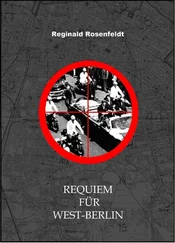Isaiah Berlin - Russian Thinkers
Здесь есть возможность читать онлайн «Isaiah Berlin - Russian Thinkers» весь текст электронной книги совершенно бесплатно (целиком полную версию без сокращений). В некоторых случаях можно слушать аудио, скачать через торрент в формате fb2 и присутствует краткое содержание. Год выпуска: 0101, Жанр: Старинная литература, на русском языке. Описание произведения, (предисловие) а так же отзывы посетителей доступны на портале библиотеки ЛибКат.
- Название:Russian Thinkers
- Автор:
- Жанр:
- Год:0101
- ISBN:нет данных
- Рейтинг книги:3 / 5. Голосов: 1
-
Избранное:Добавить в избранное
- Отзывы:
-
Ваша оценка:
- 60
- 1
- 2
- 3
- 4
- 5
Russian Thinkers: краткое содержание, описание и аннотация
Предлагаем к чтению аннотацию, описание, краткое содержание или предисловие (зависит от того, что написал сам автор книги «Russian Thinkers»). Если вы не нашли необходимую информацию о книге — напишите в комментариях, мы постараемся отыскать её.
Russian Thinkers — читать онлайн бесплатно полную книгу (весь текст) целиком
Ниже представлен текст книги, разбитый по страницам. Система сохранения места последней прочитанной страницы, позволяет с удобством читать онлайн бесплатно книгу «Russian Thinkers», без необходимости каждый раз заново искать на чём Вы остановились. Поставьте закладку, и сможете в любой момент перейти на страницу, на которой закончили чтение.
Интервал:
Закладка:
he was not surprised. 'They are all attacking me, Reds and Whites,
from above and below, and from the sides, especially from the sides.'1
The Polish rebellion of I 863 and, three years later, Karakozov's
attempt to assassinate the Emperor produced great waves of patriotic
feeling even within the ranks of the liberal Russian intelligentsia.
Turgenev was written off by the Russian critics, of both the right
and the left, as a disappointed man, an expatriate who no longer knew
his country from the distance of Baden-Baden and Paris. Dostoevsky
denounced him as a renegade Russian and advised him to procure a
telescope which might enable him to see Russia a little better.8
In the 70s he began nervously, in constant fear of being insulted
1 From the prose poem 'Uslyshish' sud gluptsa'. Quoted by P. Lavrov in
'I. S. Turgenev i razvitie russkogo obshchestva', Ye111rilt frtlrrJJ,oi rJo/i, vol. :z
(Geneva, I 884), p. I I9.
I Letter to Herzen, 4 June I 867.
3 See Dostoevsky's letter to the poet A. N. Maikov of :z8 August I 867
(quoted in N. M. Gutyar, op. cit. [P· :z86, note I above], pp. 337-40}.
••
2.89

RU SSIAN TH INKERS
and humiliated, to rebuild his relations with the left wing. To his
astonishment and relief, he was well received in Russian revolutionary
circles in Paris and London; his intelligence, his goodwill, his undiminished hatred for tsardom, his transparent honesty and fairmindedness, his warm sympathy with individual revolutionaries, his great charm, had its effect on their leaders. Moreover, he showed
courage, the courage of a naturally timorous man determined to overcome his terrors: he supported subversive publications with secret gifts of money, he took risks in openly meeting proscribed terrorists
shadowed by the police in Paris or London; this melted their resistance.
In 1 876 he published f'irgin Soil (which he intended as a continuation
of Fathtrs and Children) in a final attempt to explain himself to the
indignant young. 'The younger generation', he wrote in the following
year, 'have, so far, been represented in our literature either as a gang
of cheats and crooks . . . or . . . elevated into an ideal, which again is
wrong, and, what is more, harmful. I decided to find the middle way,
to come closer to the truth -to take young people, for the most pan
good and honest, and show that, in spite of their honesty, their cause
is so devoid of truth and life that it can only end in a total fiasco.
How far I have succeeded is not for me to say . . . But they must feel
my sympathy . . . if not for their goals, at least for their personalities. •1
The hero of f'irgin Soil, Nezhdanov, a failed revolutionary, ends by
committing suicide. He does so largely because his origins and character
make him incapable of adapting himself to the harsh discipline of a
revolutionary organisation, or to the slow and solid work of the true
hero of the novel, the practical reformer Solomin, whose quietly
ruthless labours within his own democratically organised factory will
create a more just social order. N ezhdanov is too civilised, too sensitive,
too weak, above all too complex, to fit into an austere, monastic, new
order: he thrashes about painfully, but, in the end, fails because he
'cannot simplify himself'; nor-and this (as Irving Howe has pointed
out)2 is the central point-could Turgenev. To his friend Yakov
Polonsky he wrote: 'If I was beaten with sticks for Fathers and
Children, for f'irgin Soil they will beat me with staves, from both sides,
as usual. '3 Three years later Katk.ov's newspaper again denounced him
1 Letter to M. M. Stasyulevich, 3 January 1 877.
1 See the excellent essay on Turgenev in Politiu a,id the NOflel (London,
1961).
• Letter o£ 23 November 1 876.

FATHERS AND C H I LD R E N
for 'performing clownish somersaults to please the young' .1 As always.
he replied at once: he had not. he said. altered his views by an iota
during the last fony years. 'I am. and have always been. a "gradualist".
an old-fashioned liberal in the English dynastic sense. a man expecting
reform rmly from above. I oppose revolution in principle . . • I should
regard it as unworthy of [our youth] and myself. to represent myself in
any other light. '1
By the late 70s his shoncomings had been forgiven by the left. His
moments of weakness, his constant attempts to justify himself before
the Russian authorities, his disavowals of relations with the exiles in
London or Paris-all these sins seem to have been all but forgotten. a
His charm, his sympathy for the persons and convictions of individual
revolutionaries, his truthfulness as a writer, won much goodwill
among the exiles. even though they harboured no illusions about the
extreme moderation of his views and his inveterate habit of taking
cover when the battle became too hot. He went on telling the radicals
that they were mistaken. When the old has lost authority and the new
works badly, what is needed is something that he spoke of in the
Nest of Gentlefolk: 'active patience, not without some cunning and
1 See B. Markevich (under the pseudonym 'lnogorodnyi obyvatel'), 'S
beregov Nevy', Moslwslie t1etlomosti, 9 December 1 879.
I Letter to Yestnik ErJropy (Tiu European Heraltl), 2 January 1 88o,
Solmznit sodzint11ii, vol. I S• p. 1 8 5.
a In I 863 he was summoned back from Paris to be interrogated by a
Senatorial Commission in St Petersburg abOut his relations with Herzen
and Bakunin. How could he have plotted with theae men, he protested, he
who was a life-long monarchist, a butt of bitter onslaughts by the 'Reds'?
After F atlzers and C/zildrtn, he assured the Senaton, his relations with
Herzen, which had never been very close, had been 'severed'. There was an
element of truth in this. But it was not perhaps surprising that Herzen (who
had not forgotten Turgenev's refusal to sign his and Ogarev's manifesto
criticising the shortcomings of the Act of Emancipation of the ser&) should,
characteristically, have referred to 'a white-haired Magdalen of the male sex'
who could not sleep at night for thinking that the Emperor might not have
heasd of her repentance. Turgenev and Herzen saw each other again in
later years, but never again on the same intimate terms. In 1 879 Turgenev
similarly hastened to deny all connection with Lavrov and his fellow revolutionaries. Lavrov, too, forgave him. (For Turgenev's relations with Lavrov and other revolutionary 4!migrt!s see P. L. Lavrov, 'I. S. Turgenev i razvitie
russkogo obshchestva', op. cit. [p. 2 89, note I above], pp. � 149, and Michel
Delines [M. 0. Ashkinazy], TOflrgol•tjfi11t01111fl [Paris, 1888], pp. S3-7 S·)
·'
291

R U S S IAN T H IN K E R S
ingenuity'. When the crisis i s upon us, 'when', i n his telling phrase,
'the incompetent come up against the unscrupulous', what is wanted is
practical good sense, not the absurd, nostalgic idyll of Herzen and the
populists, with their blind, idolatrous adoration of the peasant who is
the worst reactionary of the lot. He said over and over again that he
loathed revolution, violence, barbarism. He believed in slow progress,
Читать дальшеИнтервал:
Закладка:
Похожие книги на «Russian Thinkers»
Представляем Вашему вниманию похожие книги на «Russian Thinkers» списком для выбора. Мы отобрали схожую по названию и смыслу литературу в надежде предоставить читателям больше вариантов отыскать новые, интересные, ещё непрочитанные произведения.
Обсуждение, отзывы о книге «Russian Thinkers» и просто собственные мнения читателей. Оставьте ваши комментарии, напишите, что Вы думаете о произведении, его смысле или главных героях. Укажите что конкретно понравилось, а что нет, и почему Вы так считаете.










